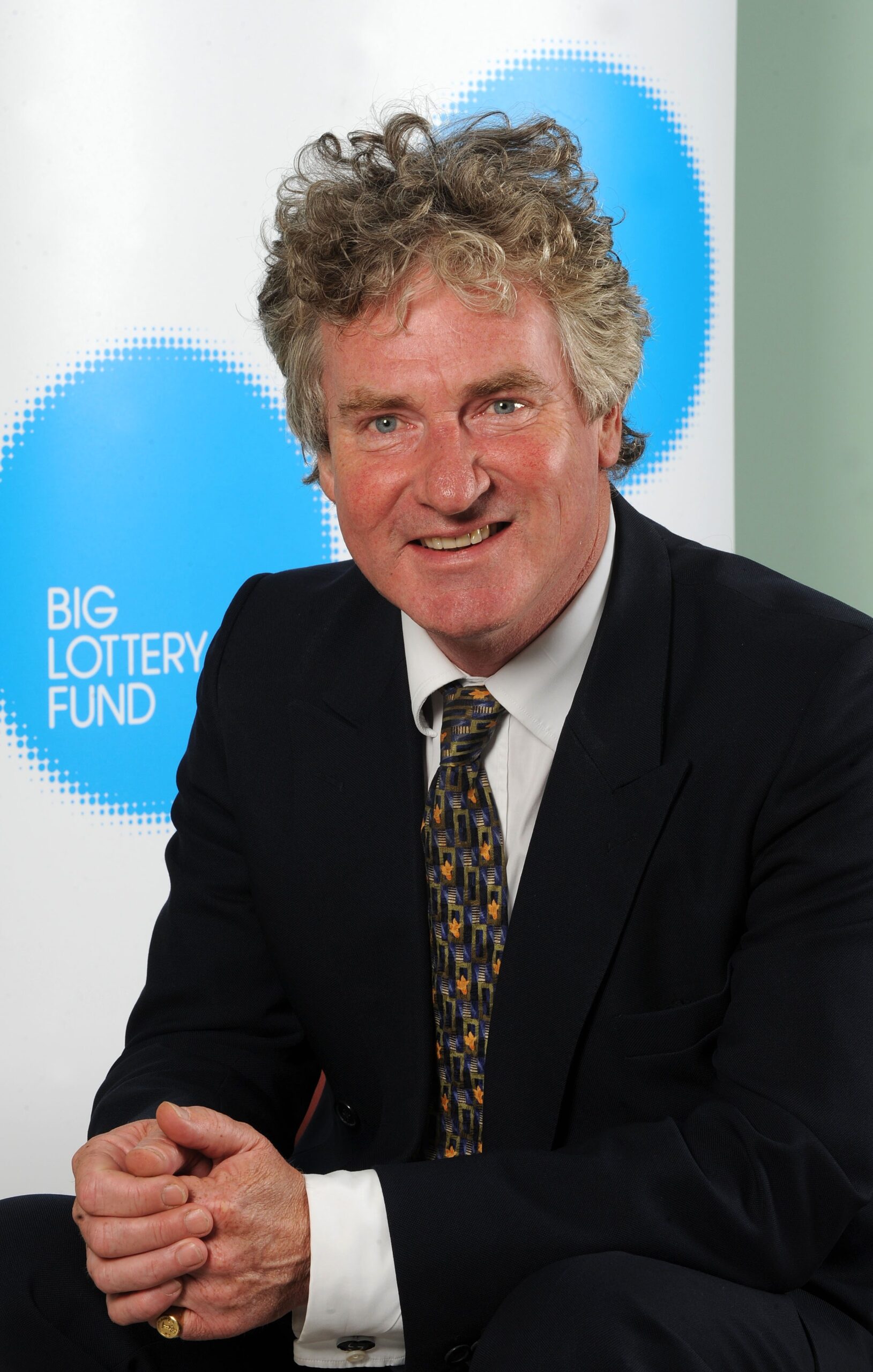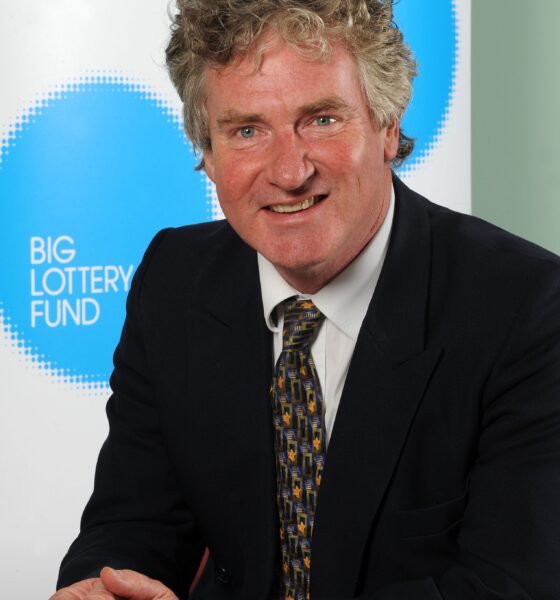

Economy
Former MP Peter Ainsworth: I worked in the City, but I’m pleased I didn’t stay
Peter Ainsworth looks back on his time working in the investment world with fond nostalgia. But even in 1992 – when he left the industry to become a Conservative MP and later the shadow environment secretary – he could see it was turning into something completely different.
“I don’t know what London’s coming to”, wrote Sir Noël Coward in his 1931 book, Collected Sketches and Lyrics, “The higher the buildings the lower the morals.” It’s almost as if the acclaimed playwright had premonitions of the future, for as the City of London – the financial heart of the capital – has grown both upwards and outwards over the years, its very purpose – to raise money for people who want to do good things – has weakened.
The events of 1986, when the City was deregulated – an event known as the big bang – are often credited with really setting this ball rolling.
Led by Margaret Thatcher’s Conservative government, the deregulation saw the London Stock Exchange ditch its trading floors in favour of electronic alternatives. This allowed in international firms – the likes of Goldman Sachs, Morgan Stanley and JP Morgan – as the City embarked on a new era of increased competition.
David Buik, who in 1986 was managing director of Babcock & Brown Money Markets, told the BBC in 2006, “At the start of big bang there were no less than 21 gilt-edged market makers – ridiculous, as there was nothing like enough business to go round.”
Working in the City around the time of this major upheaval was Peter Ainsworth, who spent over a decade at Laing & Cruickshank Investment Management (later acquired by UBS) and then SG Warburg Securities (also later acquired by UBS). The former Tory MP, who is now chairman of the Big Lottery Fund, looks back fondly at his previous career, but could see the City of London was beginning to lose its “moral purpose” when he left the industry to stand for parliament in 1992.
“Americans companies began buying out British finance firms – merchant banks, stockbroking firms and so on, which are old-fashioned terms now – and then pulverising them”, he says from his office at the Big Lottery Fund’s London headquarters.
“People started spending more time negotiating fees than they did thinking about what they could do for their clients. It was just beginning to go wrong. I could just sense it was going to go wrong. I’m quite pleased I didn’t stay.”
A few days before Ainsworth spoke to Blue & Green Tomorrow, Bank of England governor Mark Carney told BBC Radio 4’s Today programme that banks have to change their culture in order to play a more socially and economically useful role.
“Thank God somebody said it”, says Ainsworth. “The City doesn’t exist in a moral vacuum; it’s part of everything we do. Its purpose is to make good stuff happen. It’s a service industry that forgot the word ‘service’.”
Despite enjoying his time working in the City, Ainsworth decided to move his career in another direction. After bumping into a school friend of his wife who said he was standing for Wandsworth council, he decided to do the same – and won a seat.
“I ended up as a local councillor and realised that politics is not about having opinions or being interviewed on that poor, abused bit of ground outside the Houses of Parliament; actually, it’s a public service and it’s about getting things done for people.
“I really enjoyed the way that being elected to a council enabled me to make changes to people’s lives – there’s no way to say that without sounding pious. Then I was working in the City and thought that I could either stick to my workstation for the rest of my life or have a crack at becoming an MP.”
He had a crack and to his “amazement” got selected for East Surrey – a safe seat for the Tories, previously occupied by Sir Geoffrey Howe (now Baron Howe of Aberavon). He openly admits that his transition from investment to politics was not pre-planned, and while some of his former colleagues may have been reading Hansard at 11, he had not harboured a massive political ambition from an early age.
Instead, it was the ability to help enact tangible changes in people’s lives that drew him in to the profession.
Ainsworth spent five years learning the political ropes as a backbencher, before becoming shadow culture secretary in 1997 – a role he held for four years. He moved to the Department for Environment, Food and Rural Affairs (Defra) in 2001, becoming shadow secretary of state, before stepping back from frontline politics a year later for personal reasons.
He returned in 2003 to chair the environmental audit committee, where he believes he made his “biggest political impact”, before being given the environment brief again in Tory leader David Cameron’s new-look shadow cabinet.
The green agenda was picked out as a high priority during Cameron’s early leadership of the Conservatives, with the party running with its famous “vote blue, go green” campaign in the now-prime minister’s formative years at the helm. It was around this time that the much-discussed photo of Cameron “hugging” a husky came to light.
However, while the environment may not be as important as issue for the Tory party in 2013 as it was six years ago, many commentators are right in thinking conservation and Conservatism are natural bedfellows. Writing in the London Evening Standard in March, shortly after George Osborne had revealed the budget for the coming year, Independent editor Amol Rajan described the coalition government’s fatigue on all things green as “a betrayal of Conservatism itself”.
For Ainsworth – who was replaced as shadow environment secretary by Nick Herbert in the January 2009 reshuffle – the environment remains a core tenet of what it means to be a Conservative.
“I think [the Conservative party] needs to be reminded of the fact that one of the key things about Conservatism is that it’s about respecting the past, it’s about a sense of stewardship over the present and it’s about a sense of responsibility to children and the unborn.
“I’m going right back to Edmund Burke here, who was one of the founding fathers of Conservative thought, and also whose ideas about the little platoons feed straight into Schumacher’s Small is Beautiful. It strikes me that this is incredibly Conservative territory.
“Conservatism is about conserving, protecting, looking after, nurturing and being responsible. It’s utterly and deeply embedded in my sense of what Conservatism is about. You only have to remind people of that and they get it.”
A key point for Ainsworth in any environment and energy debate is that this is not a religion – even though, he says, many people treat it as though it is. Like climate change (which Ainsworth adds is “not there to be believed in or not”), it’s about rationality, evidence and decisions based on the science.
“Even if you don’t agree with the world’s leading scientists about what is happening to the atmosphere, why do we want to be dependent on imports of fossil fuels from unstable countries?” he asks.
“Isn’t it better to use and invest in the technology which does already exist and will enable us to generate cheaper, cleaner and less polluting forms of energy?
“The present government, to its credit, has tried a bit more than past governments. But the thing that concerns me is that it hasn’t succeeded in creating a stable, secure, long-term structure which will give investors confidence.”
Since stepping down at the 2010 general election, any thoughts of him missing his parliamentary career have been put on the backburner while he embarks on his latest role as chairman of the Big Lottery Fund. He continues to be passionate about the environment, and has helped the organisation invest £350m in explicitly green projects since 2007.
“Our mission is to improve the lives of people most in need. And the way to do that is to give them ownership, and ask them how they think they can solve problems for themselves”, he says.
“When you do that, very often the stuff they come up with is to do with the quality of the natural or built environment. The places where they live.
“Things like knocking down that horrible wall, getting rid of the graffiti, looking after the park better. It’s all to do with the stuff that surrounds us every day. It’s hardly surprising that the environment matters to people. It’s where we live.”
Further reading:
Coalition’s green fatigue is a ‘betrayal of conservatism itself’
Are capitalism and conservation incompatible?
There is a disconnect between investment and the real world
We need investment to return to its ‘patient evolutionary path’






























